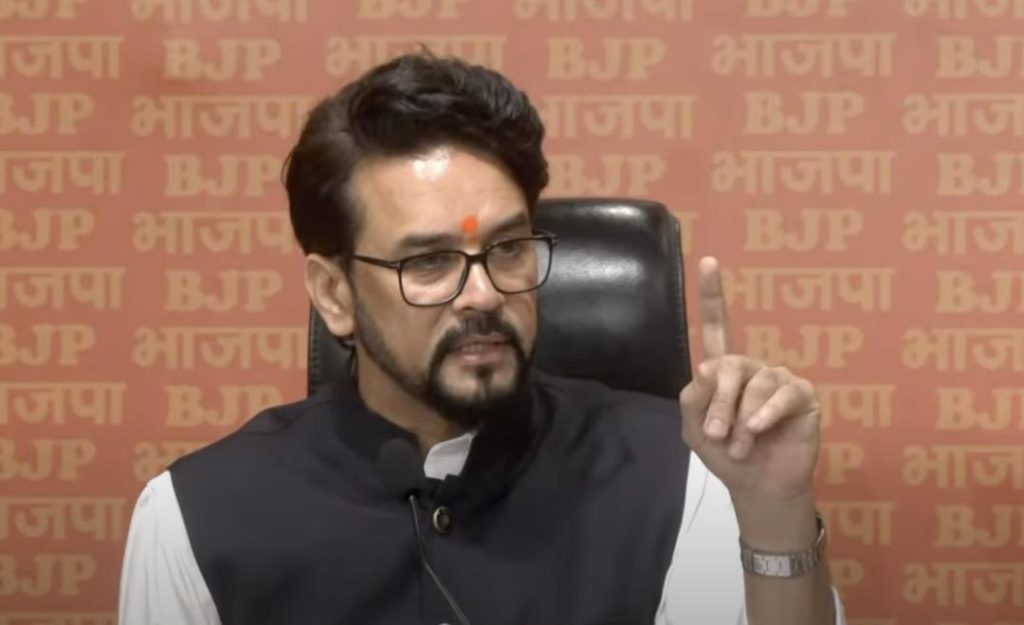
Congress & CPI made Bhimrao Ambedkar lose the poll in 1952: BJP
The Indian general election of 1952 was a significant event in the country’s political history. It was the first general election held after India gained independence from British colonial rule. The election saw the Indian National Congress (INC) and the Communist Party of India (CPI) as the dominant forces. However, the election was marred by controversy and irregularities, which had far-reaching consequences. In a recent statement, BJP MP Anurag Thakur has claimed that the Congress and CPI colluded to defeat Dr. Bhimrao Ambedkar, the architect of the Indian Constitution and a revered Dalit leader, in the election.
Ambedkar, a renowned scholar and social reformer, was a key figure in India’s freedom struggle. He was also the Chairman of the Drafting Committee of the Indian Constitution, which was responsible for drafting the country’s fundamental law. Despite his immense contributions to Indian society and politics, Ambedkar decided to contest the election as an independent candidate from Amravati constituency in Maharashtra.
Thakur, while speaking to the media, stated that the Congress and CPI joined forces to defeat Ambedkar in the election. He pointed out that 74,333 votes were rejected in the election, which was a significant number considering the total number of votes cast. Thakur claimed that the Congress, which was the ruling party at the time, ensured that Ambedkar, a constitution maker and a Dalit leader, was eliminated in the very first election after independence.
The controversy surrounding the 1952 election is not new. In the past, there have been allegations of electoral malpractices and corruption. However, the BJP’s claim that the Congress and CPI colluded to defeat Ambedkar has sparked a fresh debate. The party’s assertion has also raised questions about the conduct of the Congress during the early years of independence.
The 1952 election was a significant event in Indian politics. It was the first general election held after the country’s independence, and it marked the beginning of a new era in Indian politics. The election saw the Indian National Congress, led by Jawaharlal Nehru, as the dominant force. The party won 364 seats in the Lok Sabha, while the Communist Party of India (CPI) won 16 seats.
The election was also marked by controversy and irregularities. There were allegations of booth capturing, rigging, and tampering with electoral rolls. The Election Commission, which was established in 1950, faced criticism for its inability to ensure a free and fair election.
Ambedkar’s decision to contest the election as an independent candidate was seen as a bold move. He had been a key figure in the Indian freedom struggle, and his decision to contest the election was seen as a way to challenge the dominance of the Congress. However, his efforts were ultimately unsuccessful, and he lost the election to the Congress candidate.
The defeat of Ambedkar in the election was a significant setback for the Dalit community. Ambedkar was a revered leader among Dalits, and his defeat was seen as a blow to the community’s aspirations. The defeat also marked a turning point in Ambedkar’s political career. He would later go on to form the Republican Party of India, which would become a significant force in Indian politics.
In conclusion, the controversy surrounding the 1952 election is a significant chapter in Indian political history. The BJP’s claim that the Congress and CPI colluded to defeat Ambedkar has raised questions about the conduct of the Congress during the early years of independence. The 1952 election was a significant event in Indian politics, and it marked the beginning of a new era in Indian politics. The election was also marked by controversy and irregularities, which had far-reaching consequences.
Source:
https://youtu.be/0kLyW5rSJSg






